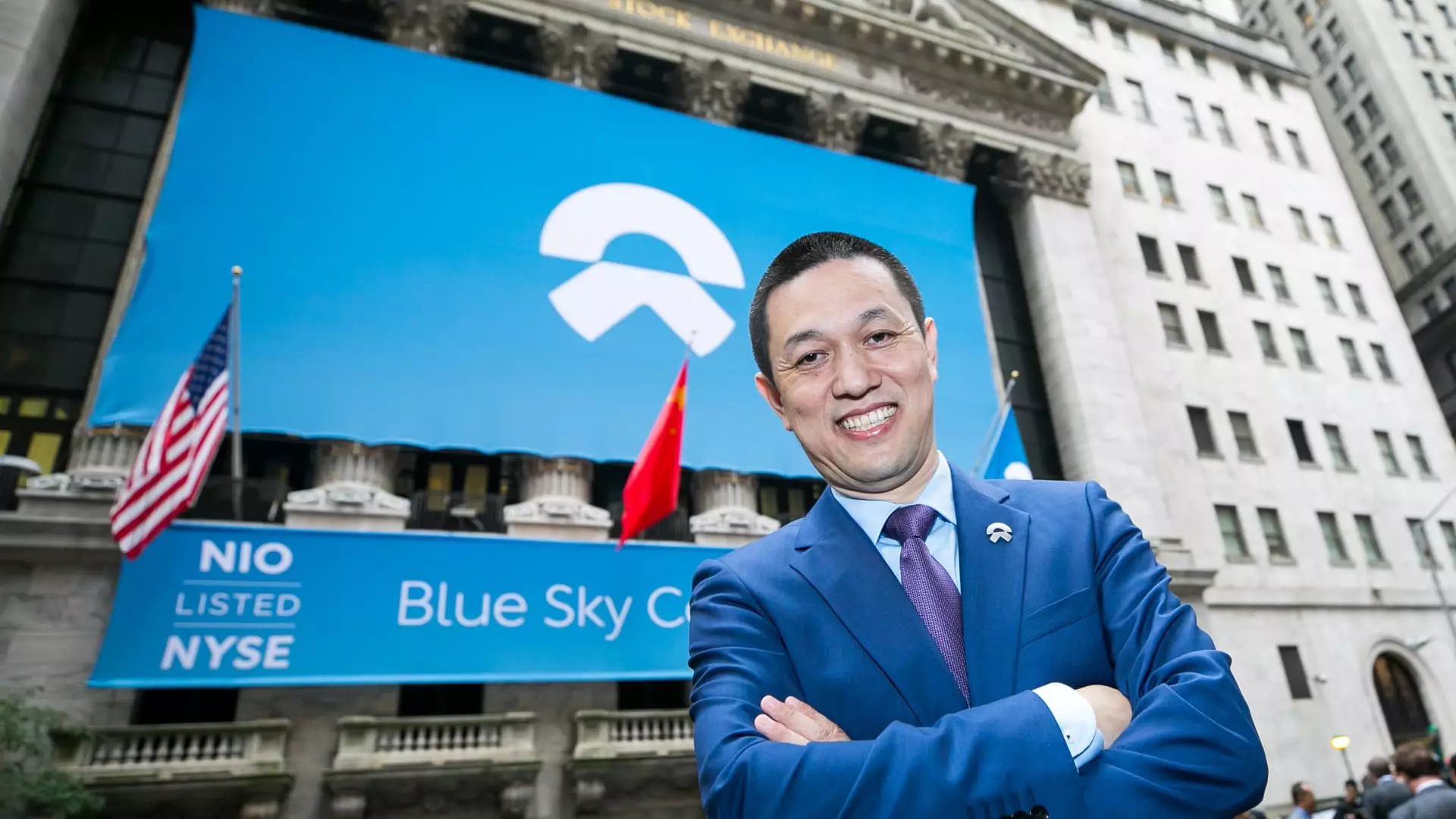Chinese electric car start-up Nio, known for its premium vehicles costing around $50,000 or more, is now shifting its focus towards a more affordable market segment. The company’s CEO, William Li, announced their plans to release a newly branded SUV that will be priced lower than Tesla’s popular Model Y. This move comes as a response to the increasing competition in China’s electric car market, where local rivals such as BYD and Volkswagen are also expanding their offerings to target a wider range of consumers.
Nio is set to unveil its new mass market brand, called Onvo or “Le Dao” in Chinese, in mid-May of this year. The name is said to reflect the company’s aim to attract families as the target consumer segment, emphasizing the idea of enjoying quality time together. Despite entering the lower-priced segment, Nio does not intend to significantly adjust prices for its main brand. However, CEO William Li acknowledges the ongoing price volatility in the market, which is likely to continue in the near future.
Another major player in the Chinese electric car market, Xpeng, is also following suit by planning to launch a new sub-brand, Mona. Vice Chairman and Co-President Brian Gu revealed that Xpeng’s new cars under the Mona brand will be priced below 150,000 yuan, offering an even more budget-friendly option compared to Nio’s upcoming SUV. The decision to target this segment is based on the belief that with scale, technology, and cost control, Xpeng can bring innovative technologies to the mass market, previously only accessible to premium consumers.
Both Nio and Xpeng are focusing on introducing advanced technologies in their new mass market brands, aiming to differentiate themselves from competitors. Xpeng, for instance, highlights its driver-assist software as a key selling point, catering to consumers looking for high-end features at an affordable price. Tesla’s comparable full self-drive software is not yet available in China, giving Xpeng an opportunity to establish itself as a leader in this segment by offering cutting-edge technologies to a broader audience.
The entry of Nio and Xpeng into the lower-priced market segment intensifies the competition among various electric car manufacturers in China. While premium brands like Tesla have dominated the market, there is an increasing focus on attracting a wider customer base by offering more affordable alternatives. Chinese giant BYD, for example, has found success in the lower end of the mass market, but is also expanding its product range to include premium and luxury cars. With multiple brands vying for market share, the landscape of China’s electric car market is evolving rapidly, with changes in pricing and offerings driving consumer choices.
The shift towards a lower-priced market segment by Nio and Xpeng reflects the changing dynamics of China’s electric car industry. By introducing new brands and models targeted at a broader range of consumers, these companies are not only expanding their market reach but also driving innovation and technological advancements in the mass market. As competition intensifies, consumers can expect more choices, advanced features, and competitive pricing in the electric car sector, signaling a new era of accessibility and affordability in sustainable transportation.


Leave a Reply